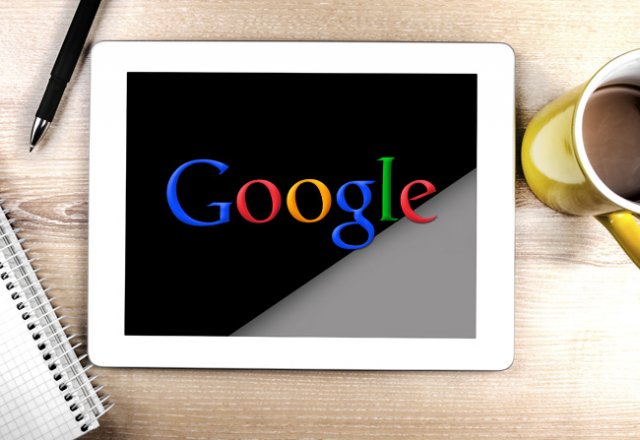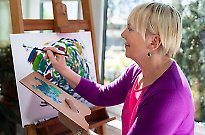
Can we trust Dr Google?

Is it healthy to be looking online for information about your health? What should you look out for and what are the best sites?
An increasing number of people are looking online before going to a doctor. They’re 'Googling' for information, advice and in some cases replacing a real life doctor’s appointment with an online consultant.
The benefits are enormous if you get the mix right, tread cautiously and listen to the right people. Get it wrong, and you’re putting your health at considerable risk.
“Health is very much about communication and the internet is just so incredibly accessible and useful,” says Dr Ronald McCoy from the Royal College of General Practitioners.
“We encourage everyone to learn as much as they can about their health and to take an active interest, but you have to develop a critical facility for it because anyone can put anything on the internet.”
The internet is an ever-changing resource. Whereas once we viewed online information merely as a glorified library it is now a far more fluid entity, liable to send you off in the wrong direction if you let your focus wander.
“There has been a huge change in the way people use the internet,” agrees Michael Carr-Gregg, psychologist and author of Real Wired Child – what parents need to know about kids online. In the early days most users spent their time downloading information, but now the dynamic has changed.
New websites and services appear and become hot overnight, replacing old favourites. People of all ages now more commonly upload information to the web, using the internet as a way to express themselves.”
Non-professionals abound and chat sites are filled with all-knowing individuals offering advice on the ultimate superfood, diet, fitness technique, or path to enlightenment. They may not necessarily be wrong – good knowledge can sometimes be found in the most unlikely of places. You just need to check your facts.
What to look for and what to watch out for
Fortunately, reliable information isn’t too hard to find if you know what to look for, or rather, what to steer clear of.
“The big questions we suggest people ask is ‘what is the qualifications of the authors and what scientific basis do they have?’,” says former Australian Psychological Society president Bob Montgomery.
“Somewhere there should be a reference to the research that it’s based on. If you’re going to tinker with your life following someone’s plan then, you want to know that person has the qualifications necessary to give you efficient and safe advice.”
Be wary of any information that claims to have a cure for a major medical condition or leads towards a solution that involves a purchase. This is essentially advertising and is unlikely to be reliable information.
In some cases their motives may be even more sinister.
“A common scam, known as ‘phishing’, involves official-looking emails and websites which demand personal information, including passwords or bank account and credit card details,” Carr-Gregg says.
“They may appear to be legitimate requests for updates or confirmation from known institutions.”
Always be extremely cautious about providing any personal information – especially passwords – to a website, particularly if there is no physical location and only limited contact details listed. If they’re not willing to provide information about themselves, then you shouldn’t be either.
The website address itself can also offer a clue to its reliability, with .gov or .org indicating a government or health organisation that is likely to be reputable.
It’s also a good general idea to favour Australian health websites, as information from overseas may not always relate to local conditions, or adhere to Australian laws. There are a number of health products and medicines that are available in the US, for instance, that may be considered illegal here.
Virtual vs Real
E-health may be easy to access, cheap and a whole lot quicker and more enjoyable than sitting in a waiting room for half an hour waiting for your name to be called, but this doesn’t do away with the need for a real flesh-and-blood doctor. In fact, it adds a new dimension to their role.
Doctors are now not simply treating a patient’s symptoms, giving them a prescription and sending them on their way, but interacting with a more informed patient. After all, doctors do a considerable amount of research online themselves. In many cases a doctor will use the internet to look up, confirm or repudiate a treatment option during consultation.
“One of the things we encourage people to do if they find some information on the internet that they’re not sure about is print it out and bring it in so your doctor can go through it and see whether it’s reliable information or not,” says Dr McCoy.
“Ultimately, I see it as a partnership between the patient and the doctor.”
Top 10 health sites you can trust
Heath Direct: healthdirect.gov.au
This government-run health site covers virtually all bases, providing up-to-date information about conditions and diseases, treatment options, nutrition, fitness, women’s health, and links to a host of state and territory health services. An invaluable and trustworthy first-stop site.
Virtual medical centre:
myvmc.com
A popular Australian site that includes an enormous amount of information, including Health Calculators, sections on men’s and women’s health, and a wide range of 3D animations and videos from experts as well as patients.
Mayo Clinic:
mayoclinic.org
An award-winning US not-for-profit, cutting-edge health site and highly respected organisation. Mayo Clinic draws from the experience of more than 3000 doctors and scientists in bringing you the latest evidence-based medical research and advice.
The Natural Health Society:
health.org.au
A sprawling not-for-profit site packed with healthy living info, a wealth of free articles and a very useful directory of complementary practitioners. There’s lots of free stuff, and if you become a paying member it unlocks even more members-only advantages – including chat forums and discounts.
Better Health Channel:
betterhealth.vic.gov.au
Along with Health Direct, this is one of the best government health sites in the nation. Backed by the Victorian Government, the information is general in nature and very clearly and precisely written. Includes a relationship section, a video library and an excellent Health Recipes section.
Beyondblue:
beyondblue.org.au
One of the best sites on the net dealing with mental health issues such as depression, anxiety and bipolar disorder. Contains a symptom checklist, the latest mental health research, a ‘share your story’ section and a directory of mental health contacts.
Medline Plus:
nlm.nih.gov/medlineplus
A service of the US National Library of Medicine, Medline Plus covers a lot of territory, including current clinical trials, a complementary and alternative health section, and an online medical dictionary. As a bonues, information is also available in multiple languages.
ABC Health and Wellbeing:
abc.net.au/health
An excellent resource of local and international health stories and comment from some of Australia’s top health professionals. It includes consumer guides, plenty of quizzes, and an extensive library of past features and links to ABC health programs.
WebMD:
webmd.com
Consistently rated the most popular health site on the internet, WebMD contains a wealth of useful information, including advice on eating and diet, pregnancy, parenting, relationships, mental health and even pet health.
Australian Natural Therapists Association:
australiannaturaltherapistsassociation.com.au
Last, but definitely not least – when you’re done self-diagnosing and want to see a qualified in-the-flesh health professional, the Australian Natural Therapists Association can help you find someone. ANTA is the largest national body of recognised traditional, complementary medicine and natural therapy practitioners, who work in the areas of health care and preventative medicine.
Article by David Goding.


